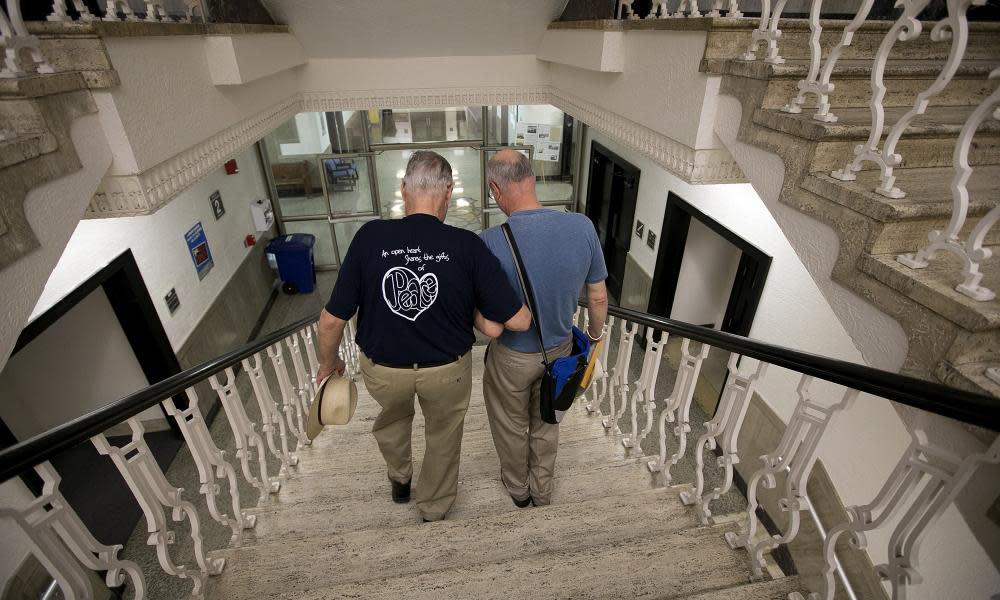Texas newspaper edits son's same-sex marriage out of mother's obituary

When Brenda Light died last month, her obituary in a small-town Texas newspaper included a wealth of biographical details. But one important family connection was missing – the fact that her son is married to another man.
The obituary submitted to the Olton Enterprise included the line “Those left to cherish her memory include her son, Barry Giles, and his husband, John Gambill of Dallas”. But there was no mention of Gambill or the union in the published version.
“It wiped John completely off the picture like he didn’t exist,” Giles told Fox 4 local news.
It was evidently not an oversight on the part of the newspaper, which is based in a town of about 2,200 residents more than 350 miles north-west of Dallas.
The publisher, Phillip Hamilton, doubles as a Baptist pastor. He told the station in a statement: “It is my religious conviction that a male cannot have a husband. It is also my belief that to publish anything contrary to God’s Word on this issue would be to publish something in the newspaper that is not true.
“The newspaper respects the first amendment rights of those who express such opinions. The newspaper’s decision to edit the obituary is both ethical and lawful. It would be unethical to publish a news item that is known by the editor to be false. Based on the truth found in the Word of God, I could not in good conscience identify Mr Gambill as the husband of Mr Giles.”
Giles and Gambill – a trained funeral director – have been together for 31 years, according to the Dallas Voice, and Light moved from Olton to Dallas after her husband died and lived only a mile from the couple. “We spent holidays together. We did what a family would do,” Gambill told the Voice.
Same-sex marriage was legalised nationwide by the US supreme court in 2015, prompting a backlash from conservatives.
The Texas supreme court last year declared that the landmark ruling does not mean states must also provide the same benefits to all married people. The case arose from conservative activists’ attempts to stop Houston from offering spousal benefits to city employees in same-sex marriages.
Also in 2017, the Texas legislature passed a so-called religious freedom bill that civil rights groups argue gives faith-based adoption agencies the right to discriminate against potential foster and adoptive parents based on their sexuality. There is no state law banning discrimination in the workplace based on sexual orientation.

 Yahoo News
Yahoo News 
